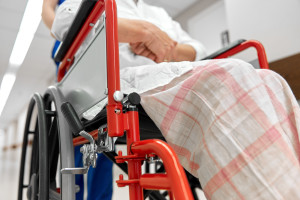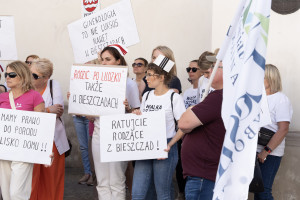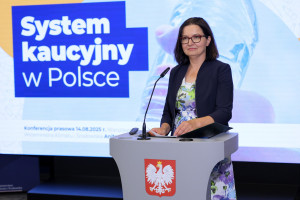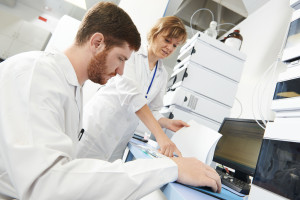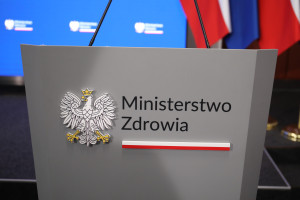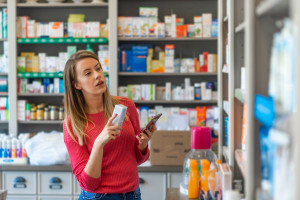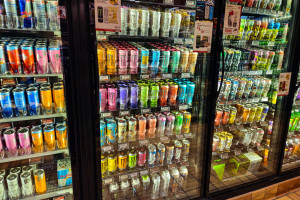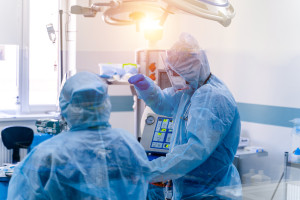The situation in Poland is catastrophic. What if there were enough medicines for two months? Health Market Interview

- On addiction: "80 percent of our production depends on cooperation with other countries. All the large, most commonly used, population-based drugs have been taken over by Asian, global producers."
- On prices: "This is not a problem for Poland, but for the entire European Union, which said 25 years ago that we have globalization, so medicines are the same product as drops and it doesn't matter where they come from, the important thing is that they are as cheap as possible "
- About KPO: "While working on this solution, we told the Ministry of Development that these loans made no sense at all. And they said, 'Yes, yes, it will be in the grant version.' And then, overnight, someone moved them from one bag to another, namely to loans. And then the news spread that companies didn't want them."
- On the pharmaceutical market " In crisis situations, we are overlooked, because please have no illusions: if there is a global company that has a problem with the availability of a drug, Poland will not be the first country to receive it. Here again, money wins. "
Klara Klinger, Rynek Zdrowia: We keep hearing that if we have Polish medicines, we'll be safe. First, tell me: what is this Polish medicine?
Sebastian Szymanek, CEO of Polpharma: It's simple. According to the Pharmaceutical Law: in simple terms, of course, it's a product packaged in Poland.
Even if what's inside the package is Chinese?
This approach may raise doubts. Therefore, the Ministry of Health has developed its own definition for reimbursement purposes. It divides "Polish medicine" into two categories: preparations, to quote verbatim, "manufactured in Poland or whose production uses an active ingredient produced in Poland." The second category includes preparations whose ingredients are 100% manufactured in Poland. This latter category receives higher reimbursement premiums.
Let's remember that this incentive is intended to increase safety by increasing autonomy. But I still don't understand how we can talk about independence if the drug ingredients are produced in Asia?
The European pharmaceutical market's dependence is tragically high— as much as 80% of our production depends on cooperation with other countries. All the large, most commonly used, and widespread drugs have been acquired by Asian, global producers. In short, Asia now produces everything that is essentially important and significant in pharmacotherapy.
And what does Europe produce?
Either something original, therefore very expensive, meaning it's worth pursuing because you can make money, or something niche. How do I know this? Because we're the only manufacturer with two production plants in Poland, producing small batches not only for our own needs, but we also export, and we can have a large global market share for a given molecule.
But you're still dependent on Asian producers. To what extent?
We currently produce 60 active ingredients in Poland, and we have several hundred drugs in our portfolio. So yes, it's true that our dependence on imported active ingredients is very high. But when it comes to the final product (finished medicine), the vast majority of drugs are manufactured in Poland. Of course, we still import some—this is part of our strategic approach, as not everything needs to be created from scratch. During this time, we build our own production, and when volumes increase and can be combined with other drugs, we move production to Poland—this is known as technology transfer.
Having or not having a six-month supply of medications. Does it make a big difference?During the pandemic, my Polish dishwasher broke down. I had to throw it away because one small wheel was manufactured in Wuhan, so there was no way to import it. The same would happen with a large portion of Polish medicines.
So imagine two scenarios. One: a given country is 100% dependent on imports. What does this mean for patients? For imported drugs, wholesalers have an average monthly supply. Pharmacies also maintain a monthly stock. From one day to the next, we receive information that we are completely cut off, and within two months, patients lose access to all medications. Now, the second scenario.
When the washing machine is made in Poland, but the "screws" come from Wuhan…
Exactly. With the factory here, I have a supply not only of medicines but also of those "screws"—active ingredients. So, in the event of a shutdown or disaster, we have a supply of both production materials and medicines in wholesalers and pharmacies. That's a total of six months' supply.
We'll postpone the catastrophe a bit. However, these four extra months can hardly be called independence and security.
That "little" is significant. These few months are a huge buffer for a local manufacturer. During the pandemic, it was enough: there were no major disruptions. This gives time to find solutions.
What would happen now if war or a natural disaster struck? How well would Poland protect patients?
As much as 97-98% of active substances, or the ingredients needed for their production, are imported from abroad, as we only produce a few dozen domestically. And I won't deny that this is a disaster. But when it comes to finished products, it's not exactly wonderful either. We're still far from self-sufficiency. For example, there are approximately 400 substances (molecules) on the reimbursement list, of which only about 100 are produced in Poland. This means we have a 75% dependency rate in reimbursed drugs, meaning those deemed essential enough by the government to co-finance them. In short, the Polish situation is catastrophic.
Medicines are the same product as drops and it is important that they are as cheap as possible?Once again, the narrative is that a Polish company is arriving on a white horse and will save our safety. Firstly, we have ambiguity about what exactly this Polish drug is. Secondly, from what you're saying, it appears that this is untrue, because even with more money, you won't be able to shift API production to Poland.
We've never convinced anyone that Polish companies will ensure drug safety without government cooperation. We're simply saying that this isn't possible. We're growing very well, but we produce only those drugs for which we can find a buyer.
We can produce various active ingredients – we have the infrastructure, installations, experience, and knowledge in API production, but… it will remain in warehouses. Unless the office responsible for drug safety develops a strategy for the production of specific APIs in Poland, no one will start production. There are two possible paths: subsidies at a level that makes the production costs of a given API competitive with Asian ones, or accepting much higher API costs, and therefore drug costs, and a complete ban on the use of Asian products in the face of European competition.
What about patient safety? Because that's the most important thing?
Leaving China will make our medicines so expensive that we won't even begin to discuss reimbursement. This isn't Poland's problem, but the problem of the entire European Union, which declared 25 years ago that globalization meant medicines were the same product as drops, and it didn't matter where they came from, as long as they were as cheap as possible. I often hear the accusation from decision-makers: "You, as an industry, moved factories there, so you're buying from there, you allowed the competition to enter..." I say: "Because you set the rules." Anyone who wanted to enter the market with entirely domestic production has no chance of winning any tender, because their labor, labour, and energy costs would be uncompetitive. We're not at that table."
As a result - as the title of one of the books says - "The Chinese Hold Us Tight"?
So much so that if China were to announce that it was considering sanctions and could block the export of pharmaceutical ingredients, it would trigger panic. Wealthier countries—like the US, Japan, and Western Europe—would immediately buy up supplies. They have more money and can afford expensive purchases. Meanwhile, Poland and other less affluent countries would be left at the end of the queue—without access to the necessary ingredients.
"I can live with a worse car, but when I need medicine, it's for today"So medicines are driven by money, not patient needs?
It's worth admitting that for many years, as a society—I'm talking about the payer, not just Polish but also European—we've benefited from the privilege of purchasing very cheap substances: thanks to cheap energy, cheap labor, and the fact that it's not our part of the planet that's being polluted. We did the same with the production of cars or semiconductors. Let's just be clear: I can live with a worse car, but when I need medication, I need it today. As a result, we're sitting on a ticking time bomb that no one wants to talk about.
However, we are saying this because support for Polish companies has been created.
After years of discussions with the Ministry of Health, we managed to convince them that companies should be encouraged to produce in Poland, not only Polish but also international ones. And we managed to create incentive mechanisms. As a result, even if a drug doesn't reach the Polish market, it's important that it's produced here. In the event of a crisis, this provides greater control and availability. Let me just remind you that this is a small incentive for the patient, who has a lower co-payment. So, there's hope that the patient will be more willing to use my drug than another, and thus gain a bit more market share. But getting this information to the patient isn't easy.
It sounds as if the ministry's actions were not so much about increasing patient safety as about increasing producers' revenues.
By encouraging production in Poland, patient safety is improved. The incentive already introduced isn't a game-changer, but for me, it was an incentive and an argument when deciding whether to choose outsourcing or in-house production. However, from the ministry's perspective, little has changed: the number of Polish drugs on reimbursement lists hasn't increased.
So the mechanism doesn't work. The Ministry of Health itself admits this in one of its reports.
Let me reverse the narrative. Who said I have to be a Polish producer? The very fact that this benefit exists keeps me convinced that it's worth producing in Poland. Over the past 20 years, we've been losing production lines – fewer and fewer every year. At this rate, in 10 years, we could have even fewer. Thanks to new mechanisms – such as the list of Polish drugs with support – we're at least slowing down this process. And it's working. Some companies, including us, have begun to move production to Poland more quickly, even though they were previously hesitant. It may not be revolutionary, but every additional drug produced here is a step in the right direction.
Yet you abandoned adrenaline production because it wasn't profitable. How do you reconcile this with caring for patients?
A great example. We had a production plant in central Warsaw – Polfa Warszawa. At one point, maintaining this plant and keeping up with technological developments required enormous financial outlays. We decided to move production from Polfa Warszawa to existing, compliant facilities in Starogard. We did this for 99% of our production. I also moved adrenaline ampoules. But I ran out of space for a single niche machine, producing 60,000 packages per year, due to the demand. I informed the Ministry of Health about this and asked for help in resolving the problem, but I understand that they decided to subsidize another, much more expensive, foreign equivalent that is already on the market, while our adrenaline ampoules have disappeared. However, we strive to maintain unprofitable production wherever possible. For example, we continue to produce over forty drugs that have no other equivalents.
The bakery will also produce bread, not just croissants.If something is the only equivalent, it means it's not a miracle business ; if it were, it would be competition . There are many examples of this, proving that we produce from a sense of responsibility, not just for profit.
During the presidency, there was also a lot of discussion about the importance of independence. Among other things, a list of critical medicines was created, those that must be secured for our society.
The EU has created its own list of critical medicines—267 items. Poland is doing something similar. Our approaches are similar, but not identical. Europe has focused primarily on two things: therapeutically important medicines. But also those whose substances are produced only in one place in the world—often in China. This applies to situations where, for example, only one or two plants in the world produce a given molecule. If something happens there, the entire market is at risk. That's why they called them particularly critical medicines.
The Polish list is similar, but more flexible. We're looking not only at specific substances, but at entire therapeutic groups. It will also be possible to obtain support for their production. Of course, not now, but in the future—when EU regulations come into effect.
There are grants, EU funds, KPO…
About 12 months ago, the Polish pharmaceutical industry submitted 25 applications for European Funds for a Modern Economy (FENG). Do you know how many received a positive assessment? One. The projects are interesting, but the criteria are inadequate. Many programs are designed so that they must prove they have something innovative. And herein lies the paradox. If we also have to produce critical products that are unprofitable in Europe, how can I prove in my application that this is a great business? If I want to build a bakery, the bakery should also produce bread, not just croissants.
But when there were funds from the KPO for this purpose, from the pool of the Ministry of Development, the companies themselves protested against such a solution.
And do you know what that was? Loans. I'm sorry, but when it comes to loans, banks in my area are lining up to come to them...
Wouldn't it be on more preferential terms with KPO?
For us, that wasn't any more attractive. After all, we'd built a new API factory in the meantime. With our own money. Without a grant.
Are you saying that money from KPO as part of a loan is less attractive than a loan from a bank?
It depends on the terms. Everyone has different loans; mine was clearly more attractive, as I didn't want grants like that, and there was the risk that if I missed a month, I'd have to repay the entire amount. I'll come to an agreement with the bank. But not with the European Commission, because the rules are very strict.
While working on this solution, we told the Ministry of Development that these loans made no sense at all. And they said, "Yes, yes, it will be in the grant version." And then, overnight, someone moved them from one category to another, namely to loans. And then the news spread that companies didn't want it. Look: hardly anyone is considering manufacturing API factories in Europe, and the government thinks it will change that by providing a loan? The payer's logic is riddled with paradoxes... Especially in the context of the constant talk about a lack of funds.
We still don't support Polish production sufficiently. Yet, spending a złoty on an imported drug is essentially buying a service. If we spend it on something produced locally, which is a high-value-added industry, a large portion of that złoty stays in our economy . Every drug that's imported, which could be produced in Poland, is a pure economic loss.
Where should profits be capped? They're currently colossal.It's too simple. If we only focus on Polish drugs, we could, for example, discourage innovative companies from selling in Poland. And Polish companies won't offer products like them.
I am not referring at all to original medicines that are covered by a patent and which are expected by society.
And every country is powerless against an innovative drug. The only thing it can do is decide whether it can afford this reimbursement or not. And even then, in crisis situations, we are overlooked, because make no mistake: if a global company has a drug availability problem, Poland won't be the first to get it. Here again, money wins. Besides, I don't think any foreign company would give up selling their drugs in Poland; it's too attractive a market for them.
There was much discussion about this regarding the pharmaceutical package. To what extent is this package, which has been so long discussed, actually a win?
It's definitely a winning opportunity. I was very positively surprised by the actions taken by the Ministry of Health, Minister Katarzyna Kacperczyk, supported by many of her staff. The game played out in Europe was that innovative companies, seeing what was happening in America and the threat of tariffs, began to peddle the narrative: "Extend our patent protection period, and we will improve drug safety."
So they started saying out loud that medicines are not drops…
As a pharmacist and someone who has worked in this industry for 30 years, I cannot find a cause-and-effect relationship here: how extending the period of patent protection would improve drug safety.
You yourself say - money is security, and if there are no investments, there are no medicines.
But where should the profit limit be? They're currently colossal – originator companies shouldn't complain. Objectively speaking, extending the patent protection period, possibly for orphan drugs, is sensible, as perhaps not everyone wants to make such large investment decisions for a very small pool of patients. But in the case of large population-based drugs, the trend should be the opposite.
During the Polish Presidency, it was made clear that the interests of both the patient and the payer are also key in this game. And the more we accelerate the entry of generics into the markets, the greater the competition and the greater the availability of drugs. This is precisely the opposite of what so-called innovative companies threatened.
Does Europe have a chance to win the pharmaceutical race?These are also tangible profits for generic companies. How much are we talking about if a given drug could have a generic equivalent a year earlier than it does now?
It depends. There are years when a drug worth half a billion goes off patent, and then we can capture a dozen or so percent of that market by having substitutes.
Take the anticoagulant drug Xarelto, for example – it was one of the biggest products in 2024. And it remained under patent protection for the longest time, thanks to various loopholes. Patients previously paid a co-payment of 130 złoty for this drug. Now they pay several dozen złoty extra. Despite patients being able to find much, much cheaper alternatives, some patients still buy the most expensive version. Xarelto accounts for 25% of prescriptions, and 75% of prescriptions are generic, even though the co-payment for the generic is three times lower. So it's not a simple translation either.
Returning to the presidency, a few other positive things happened: special funds were secured for drug safety, provisions were removed from the so-called Sewage Act, and the so-called Bolar exception was introduced, which allows for faster preparation of drugs for release to the market.
Does this mean that Europe has a chance to win this pharmaceutical race?
Look at what happened in Asia. They approached it systematically. They thought: these are the industries we want to win. We want to be the champion of rare earth elements. We want to be in renewable energy. We want to be in chips. They created a 30-year plan, implemented it consistently, and "swept us away." And there are areas where our chances are slim. I wouldn't invest in any automotive industry.
Would you invest shares in the European or Polish pharmaceutical industry?
I've kind of tied my career to it, so I invested. I think we have a better chance than the auto industry did. Whether I have a cure or not is a more politically attractive topic.
Polpharma is a partner of the Health Market Presidency department
Copyrighted material - reprint rules are specified in the regulations .
rynekzdrowia

